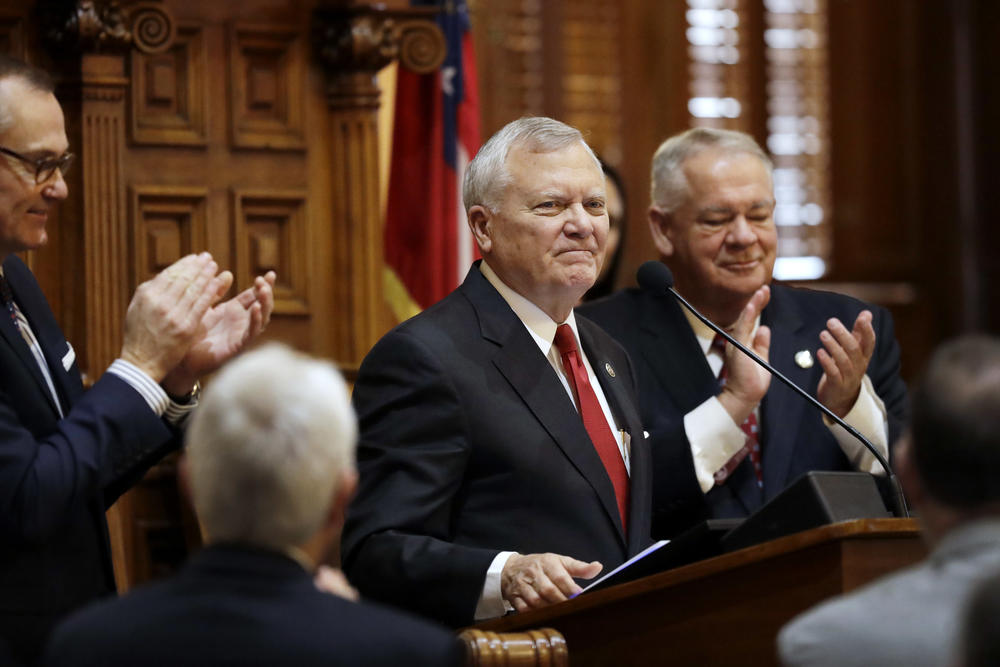Section Branding
Header Content
Deal Focused On Education, Healthcare, Pay Raises In 2017
Primary Content
Gov. Nathan Deal wants Georgia lawmakers to spend this year’s legislative session focused on underperforming schools, healthcare, and investing in the state’s workers.
Those were just a few of the highlights of his annual State of the State address delivered Wednesday to a joint session of the Georgia General Assembly.
Deal came out swinging on education, seemingly unfazed by Georgia voters’ rejection of his proposed Opportunity School District plan last November.
“Currently, the greatest negative in the education landscape of Georgia is the number of children trapped in failing schools,” he said.
Deal said 89,000 students were stuck in 153 underperforming schools, numbers that had ticked up since last year.
“If this pattern of escalation in the number of failing schools does not change, its devastating effects on our state will grow with each passing school year,” he said.
Deal said leaders in the House and Senate were already working on legislation that would allow the state to intervene in these schools, though he was unclear on specifics.
But Georgia Democrats aren’t waiting on the details of a new plan to offer up one of their own.
In their response to the governor's address, they announced their support for a “community schools program” that’s locally-run and focused on addressing outside-the-classroom issues like access to medical care and healthy food.
“We know that hungry and sick children don't learn, and that those who lack structure after school are at a disadvantage,” said Sen. Vincent Fort (D - Atlanta). “If every school offers those programs, we'll see kids perform better, and they'll graduate with the skills they need to succeed.”
Deal also touched on healthcare, asking legislators to hold off on making any big changes to state policy before it’s clear how the incoming Trump administration will affect the Affordable Care Act.
Still he said he was encouraged by Georgia Congressman Tom Price’s nomination to lead the U.S. Department of Health and Human Services.
“Hopefully very soon, the authority to make decisions regarding our state Medicaid program and how to design it in such a way that best fits the needs of our citizens will be returned to Georgia,” Deal said.
For their part, Democrats say they’ll continue their fight to expand Medicaid, something state Republicans have been against for years now.
Deal also spent time focused on how the state will spend its $25 billion budget, the largest in state history. Highlights included pay raises for state teachers, law enforcement officers, and Division of Family and Children Services caseworkers and $50 million dollars for a cybersecurity training center in Augusta.


